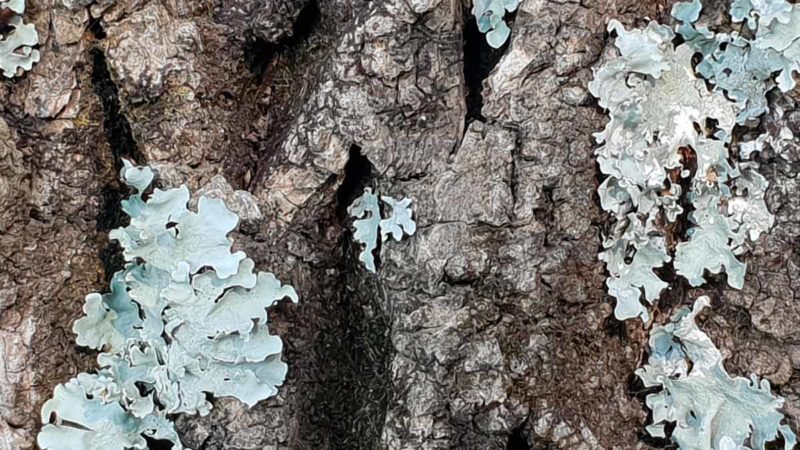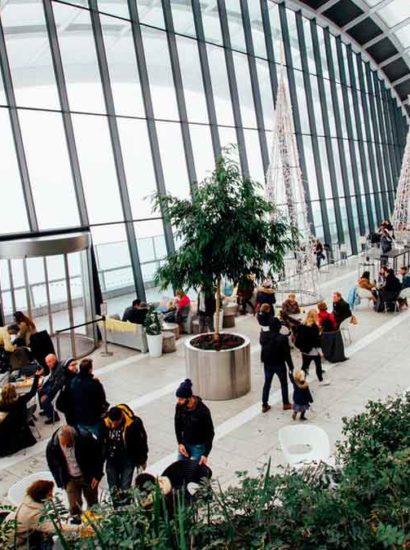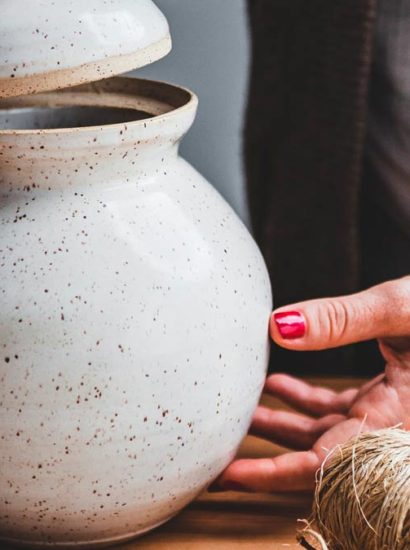Table of Contents
Biodegradable urns are made from organic and recycled materials that have been sustainably collected. The growing demand for biodegradable urns for ashes has sparked the interest of manufacturers, who have turned to traditional and sustainable materials such as salt to create beautiful biodegradable urns from the sea, or plant fibres, perfect for biodegradable tree urns.
The rise of the biodegradable urns for ashes
There is an increasing demand for biodegradable urns for funerary cremation, mainly due to two factors. Firstly, more and more people are opting for cremation for their funeral home service, and the number is growing year by year all over the world. The main reason for this increase is that cremation is more economical and environmentally friendly than burial.
Secondly, there is a clear increase in demand for environmentally sustainable products and services. The consumption of organic products grew by 17% during 2020 in Spain, according to the Annual Report on Organic Production in Spain. Likewise, the market value of organic consumption in Europe amounts to 45,046 million euros, led by Germany (31%), France (29%), Italy (9%), Switzerland (8%), the United Kingdom (7%), Sweden (6%) and Spain (5%).
Concern about the environmental footprint
The concern to reduce the environmental footprint has also been transferred to the funeral home industry. Manufacturers are increasing the production of biodegradable urns for ashes and many funeral homes have incorporated this type of urn into their range of services. In addition to meeting the Sustainable Development Goals, the key is to tap into the growing demand for green funerals. According to a recent survey by the Association of American Senior Citizens (AARP), a group with more than 35 million members, 21% of people over the age of fifty say they prefer a more environmentally friendly type of burial.
In the United States and Canada, natural burial sites have almost tripled in the last seven years.
These biodegradable urns are often buried in natural cemeteries, which are growing in number and popularity. In the United States and Canada, such burial sites have almost tripled in the last seven years, with a total of 330 such sites to date. The same has happened in Great Britain, which now has more than 270 natural burial grounds established there.
The Green Burial Council, an organisation which promotes green burials in the United States, says that the demand is increasing as people become more informed and realise that they can get the funeral they want with little or no pollution.
The latest materials for biodegradable urns
The difference between biodegradable urns and other types of ashes containers is that they are made from organic and recycled materials that have been sustainably collected. These urns do not contain any metal or plastic materials and are perfect for burials at sea or in natural cemeteries because they decompose naturally when buried or exposed to water.
- Recycled and environmentally friendly paper
- Tree bark and plant materials
- Palm leaves
- Unfired clay
- Salt
- Sand
As long as they are protected from the elements, most biodegradable urns can last for many years. However, they decompose quickly when buried or submerged, without any negative impact on the environment.
Biodegradable urns for water burial
In order to be able to scatter ashes in a natural environment without negative consequences for the environment, the use of biodegradable urns is mandatory. In the case of burials at sea, urns made of salt or sand are the most suitable. Both materials are hard and resistant in dry environments and can last for years. However, when immersed in water, they are diluted within minutes.
Salt or sand urns are only made from biodegradable materials and vegetable binders in some cases, which are easily reintegrated in a marine environment. After baking, these urns are not usually decorated with paint and, of course, do not include metal or plastic decorations.
Remember that each country has its own regulations regarding funerals at sea. In Spain, for example, it is forbidden to deposit ashes at sea. This ritual can only be carried out by funeral homes with a specific permit or with specific permission from the Directorate General of the Merchant Navy (DGMM) or the Ministry of Public Works.
Biodegradable urns for ashes with tree seeds
The biodegradable urns for ashes most suitable for burial in natural cemeteries are made from recycled and ecological paper, tree bark, palm leaves and other plant materials such as olive pits. These materials are integrated into the earth without generating any type of impact.
Some of these urns, in addition to containing the ashes of the deceased, include a second capsule in which a seed is placed together with a substrate tablet. In this way, the remains of the deceased become a tree. This tree is often part of what are known as memorial or remembrance forests, an option that is becoming increasingly popular with customers.






